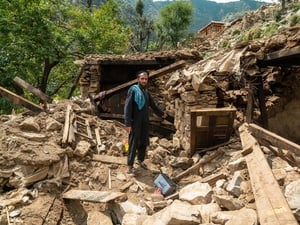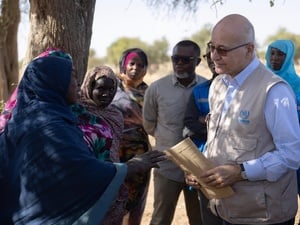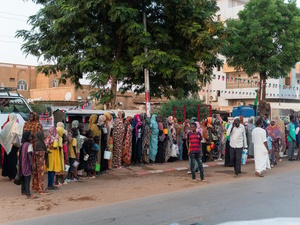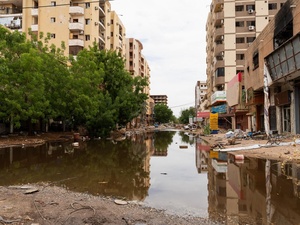Chad: emergency team to deploy to transfer Sudanese inland
Chad: emergency team to deploy to transfer Sudanese inland
A UNHCR emergency team is scheduled to deploy to remote eastern Chad next week to prepare the transfer of thousands of Sudanese refugees from insecure border areas to safer, new camps further inland.
The deployment of the eight-member team, the third UNHCR emergency crew deployed to Chad this year, follows a six-day mission to the region last week by Assistant High Commissioner Kamel Morjane. Mr. Morjane, who returned to Geneva on Friday, said some 91,000 refugees from western Sudan's strife-torn Darfur region were now in Chad and many are in need of urgent assistance. An estimated 25,000 new arrivals have been reported this month alone. The refugees began fleeing Darfur in April, following attacks on towns and villages in the region by militia groups. The work of relief agencies in Darfur has also been blocked, prompting thousands of Sudanese to flee to Chad.
Over the past 20 years, aid organisations estimate that more than 4 million people were uprooted in Sudan's civil conflicts, of which Darfur is the latest.
If ever there were an "invisible" emergency, this is it. Chad's eastern border region with Sudan is very remote and difficult to reach. The refugees are scattered along a 600-km stretch of the border and have received little international help or attention. Many are in poor health and living in makeshift sites near the volatile Chad-Sudan border, making it all the more urgent that they be moved further inland.
The UNHCR emergency team will be based in Abéché, the main town in eastern Chad and about 150 km from the Sudan border. UNHCR is hurriedly developing a refugee site in Farchana, about 55 km from the border. By mid-January, Farchana should be ready to take an initial 10,000 refugees, who will be brought to the site from various collection points along the border. The site will need water wells and a basic road network before the first group of refugees can be transferred. We are also looking at other possible sites away from the border.









